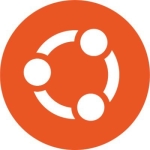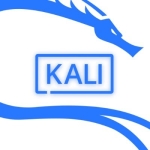What is our primary use case?
I use Oracle Linux for system operation, where I create files and utilize scripts as part of my everyday work with this operating system. I use the virtual machine with Oracle Linux as my everyday solution, as the virtual machine's typical uses include navigating and having a machine because it is faster, and Oracle Linux is more secure than Windows. For that reason, I use Oracle Linux server in my job at the bank.
What is most valuable?
The best features Oracle Linux offers include security, which is vital because we have important files that we cannot share with others, and performance, as it is faster. The bank uses it because the performance is better than Windows; it is faster to create files, move them, and retrieve files from Cobol, which are just some examples.
I cannot download some files from any website because the antivirus detects them, and I also cannot upload certain things in my virtual machine due to restrictions; that is an example of the security feature that it has.
The efficient security is a positive impact Oracle Linux has had on my organization, as that is the main aspect I notice. I do not work in the security sector at the bank, but I use it for my operating system.
What needs improvement?
I think the majority of the things that Oracle Linux provides for my job are good. I also want to mention that Oracle Linux interface is very well-designed because it is similar to Windows, but that is not a feature; it is just a good recommendation.
I choose a nine instead of a ten because I do not think it is the perfect operating system; I consider that there are a lot of better options. In my personal case, I prefer Linux Mint because I appreciate the interface, and it is lighter than Oracle Linux. Additionally, Oracle Linux is sometimes complex to install, and when I use it for my personal needs, I encounter some conflicts, so that is a small thing that I have to share.
For how long have I used the solution?
In the bank, I use Oracle Linux server as my virtual machine, and I have been working with this for about two years.
Buyer's Guide
Oracle Linux
February 2026
Learn what your peers think about Oracle Linux. Get advice and tips from experienced pros sharing their opinions. Updated: February 2026.
883,026 professionals have used our research since 2012.
What do I think about the stability of the solution?
Oracle Linux is stable in my experience, and I do not have any complaints during the time that I have used it.
What do I think about the scalability of the solution?
I think Oracle Linux can handle growth as it depends on all your necessities, but its scalability is easily managed.
How are customer service and support?
I do not know about the customer support for Oracle Linux since I work with on-premises services, so the people working in the bank provide the support.
How would you rate customer service and support?
Which solution did I use previously and why did I switch?
I think Oracle Linux is the main option that the bank evaluated before choosing it.
How was the initial setup?
That is the principle for the bank regarding how we use Oracle Linux, and we do not have a preference because that is the rule in the bank.
Oracle Linux is deployed as on-premises services in my organization because I have to log in with the virtual machine from Windows.
The environment for Oracle Linux is installed on-premises services instead of being hosted in a cloud environment like Google Cloud, AWS, or something else.
What about the implementation team?
I think that there is not a business relationship with the vendor other than being a customer.
Which other solutions did I evaluate?
In my personal case, I prefer using Linux Mint and other lighter operating systems because I do not have good performance on my computer, but I think Oracle Linux is the main solution the bank chose for work.
What other advice do I have?
When I say efficiency, I mean that Oracle Linux helps me work faster, especially in developments; I work as a data engineer, and I need a faster operating system, which Oracle Linux provides me as I have to upload a lot of big data, and that is very useful.
I think Oracle Linux is a good option for organizations; in personal cases, there are a lot of better options, but for organizational companies, it is good for scalability, performance, and security.
I gave this product a rating of nine out of ten.
Which deployment model are you using for this solution?
On-premises
Disclosure: My company does not have a business relationship with this vendor other than being a customer.



















